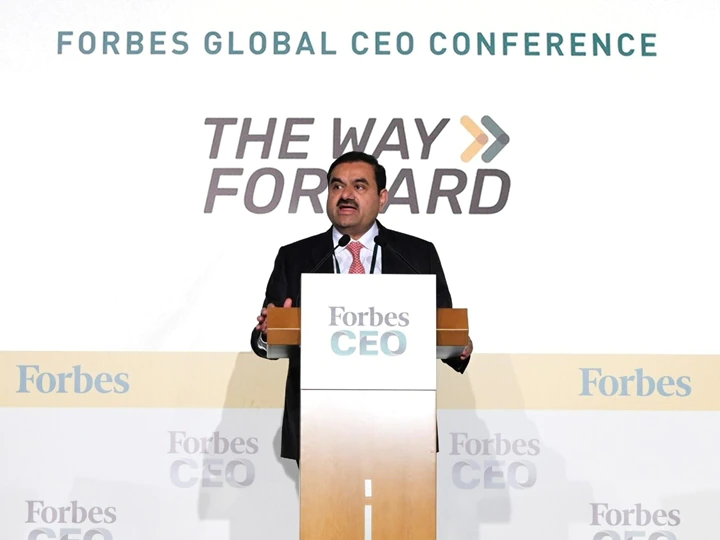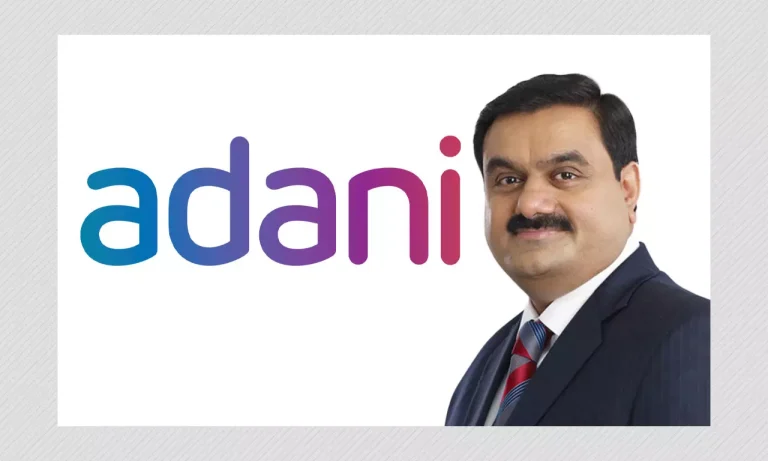Chairman Gautam Adani said on Tuesday that the Adani Group will invest USD 100 billion over the following ten years, particularly in new energy and the digital sector, which includes data centres. The Adani Group is placing significant bets on India’s economic narrative.

The second-richest person in the world, Adani, indicated that up to 70% of this investment will go into the energy transition area as he continued to gradually divulge the group’s new energy ambitions.
The ports-to-energy conglomerate will construct 3 Giga plants to produce solar cells, wind turbines, and hydrogen electrolysers, along with an additional 45 Gigawatts of hybrid renewable power production capacity.
“Over the next ten years, the Group will invest more than $100 billion in capital. At the Forbes Global CEO conference in Singapore, Adani, the founder and chairman of the Adani Group, stated, “We have designated 70% of this investment for the energy transition area.
The 60-year-old mogul, who began with a tiny commodities firm in 1988, overcame Amazon CEO Jeff Bezos, French business magnate Bernard Arnault, and American businessman Bill Gates to become the second-wealthiest person in the world with a fortune of USD 143 billion.
The aggregate market capitalization of the group’s listed enterprises, which have interests in sea ports, airports, renewable energy, cement, and data centres, is USD 260 billion. The company is already the biggest solar player in the world.
“The new company will be enhanced by an additional 45 GW of hybrid renewable power generation distributed over 100,000 hectares of land, an area 1.4 times the size of Singapore, in addition to our existing 20 GW renewables portfolio. Three million metric tonnes of green hydrogen would eventually be commercialised as a result, he said.
Additionally, it will construct three 3 GW factories: a 10 GW integrated wind-turbine manufacturing plant, a 5 GW hydrogen electrolyser factory, and a 10 GW silicon-based photovoltaic value-chain that will be backward-integrated from raw silicon to solar panels.
We have a clear path to becoming one of the least cost producers of the green electron and thereafter the least expensive producer of green hydrogen, we can certainly say today, he said.
He claimed that digital space aims to gain from the proximity of the energy revolution.
“The Indian data centre market is expanding rapidly. This industry uses more energy than any other in the world, so our decision to develop green data centres is a differentiator that will change the game, he added.
The firm intends to construct consumer-based super-apps that would gather hundreds of millions of Adani’s B2C consumers on one common digital platform and interconnect data centres through a system of terrestrial and internationally connected subsea cables drawn at its ports.
We also recently completed developing the largest sustainability cloud in the world, which is already powered by 100 of our solar and wind sites and is controlled by a single enormous command and control centre that will soon be supplemented by a worldwide A-I lab, the executive stated.
These new enterprises will expand the expanding Adani empire, which already operates the nation’s biggest seaports and airports. It is the second-largest cement producer in the country, the most valued FMCG firm, and the biggest integrated energy operator.
“The point I want to emphasise is that there are amazing possibilities all around India. The actual tale of India’s progress has just begun.
The greatest time is now for businesses to take advantage of India’s economic recovery and the extraordinary multi-decade tailwind that the largest and most dynamic democracy in the world provides. The influence India will have on the globe over the next three decades will be most clearly defined during this time, he continued.
Adani noted that although China was once the advocate of globalisation, it is now experiencing difficulties.
“I predict that China, which was formerly seen as the leading proponent of globalisation, will feel more alone. Technology limitations, supply chain risk reduction, and rising nationalism will all have an effect, according to Adani.











